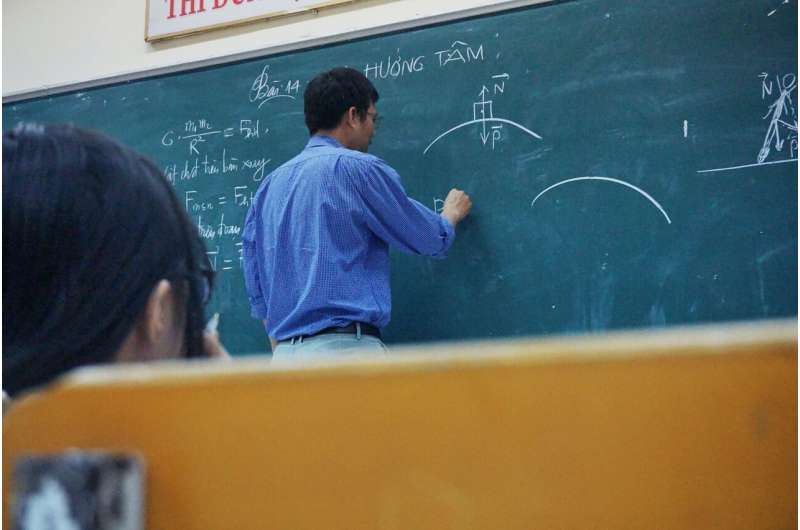April 1, 2022 report
Experiments show efficient strategies evolve better over generations when people have a choice of a better teacher

A quartet of researchers, three from Princeton University, the other the University of California, Berkely has found via experimentation that strategies for solving problems become more efficient over generations when the people involved are able to choose better teachers to guide them.
In their paper published in the journal Science, B. Thompson, B. Van Opheusden, T Sumers and T. L. Griffiths describe experiments they conducted online with paid volunteers that involved solving a problem and passing on solutions to the next generation of volunteers. The paper also discusses what the authors believe it shows about the means by which humans pass on wisdom. Joseph Henrich with Harvard University has published a Perspective piece in the same journal issue outlining the work by the team in this new effort.
How humans have managed to pass on cumulative knowledge over successive generations is somewhat of a mystery to scientists. While it is known that knowledge is passed from one generation to the next, often with hands-on training, it is still not known how such knowledge is retained and improved upon over many generations. As an example, Henrich notes that it took a lot of effort by people living in Micronesia to learn and pass on skills needed to traverse the Pacific Ocean: Doing so involved some becoming masters who passed on what they had learned from those who came before them.
In this new effort, the researchers theorized that such knowledge is passed on through a process of selective social learning. To find out if they might be on the right track, they enlisted the assistance of 3,450 paid volunteers who participated in the experiments online.
The experiment consisted of first asking an initial group of volunteers to solve a problem by finding an algorithm to sort six tiles in the fewest number of comparisons. Each of the volunteers was then asked to use the algorithm they found to sort nine tile sextets. Once they finished, each of the volunteers was asked to write a passage describing how they achieved their results and to record a demonstration of their approach.
The next generation of volunteers was asked to do the same task but also had the option of learning from the first generation of volunteers. In successive generations, volunteers who were selected as teachers earned extra money. After the first generation, volunteers were placed into random groups where they were allowed to pick their teacher. Some groups were allowed to see the payoffs to teachers, others could not. The researchers suggested seeing those payments was a way for volunteers to determine which individuals were the better teachers.
In looking at the results of their experiments, the researchers found a pattern: Those volunteers who were allowed to choose better teachers, quite naturally, did better on the task than those with less proficient teachers. And that, the researchers found, resulted in a sort of snowball effect, where learners grew "smarter" over generations due to gaining access to historical knowledge over generations.
More information: B. Thompson et al, Complex cognitive algorithms preserved by selective social learning in experimental populations, Science (2022). DOI: 10.1126/science.abn0915
Joseph Henrich, Selective cultural processes generate adaptive heuristics, Science (2022). DOI: 10.1126/science.abo0713
Journal information: Science
© 2022 Science X Network




















